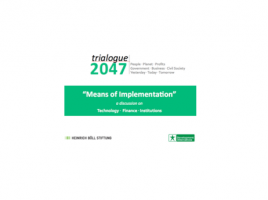Envisioning India @100
- How does India measure up to the Vision that its founders fought for in 1947?
- If present trends continue, what will the lives of Indian be like in 2047, 33 years from now, when India is 100 years old?
- What changes if any are required to make India a nation where every citizen can live in a healthy ecosystem and a vibrant community with full justice, dignity and peace
- Is this vision held by all or is it idiosyncratic, idealistic and impossibly utopian?
- If it is desirable,
- Can present policies and practices lead us to this type of future?
- What are the necessary steps to maintain a balance between poverty eradication,environment sustainability and economic development?
- How can policies influence the consumption patterns of our burgeoning middle class to build and maintain an equitable society?
- How can we include the bottom of the pyramid in the benefits accrued from growing GDP?
- What kind of transitions do we need from the current business-‐as-‐usual approach and how will these be initiated?
- How do we move beyond the current indicators of economic progress and focus on wellbeing – continuing human and planetary wellbeing?
The first of the series was a discussion titled “Beyond Growth” explored the relevance and limitations of the concept of growth as the prime goal for social and economic development. This discussion was led by Ashish Kothari, author of the book “Churning the Earth”; Deepak Nayyar, Professor Economics at Jawaharlal Nehru University; Ashok Khosla, Chairman, Development Alternatives Group. It focused on the need to look beyond growth and its aggregates, to critical issues such as ‘growth for whom’ and ‘growth for what’. In this race of achieving higher levels of growth, there is a need to recognize its limits – resource limits, connectivity limits and social alienation.
The second trialogue 2047, principles for policy making discussed the need for policy making in India to be built upon and guided by principles that endogenize equity, transparency, justice, and environmental sustainability. Varad Pande, Officer on Special Duty to India’s Minister of Rural Development; Suman Sahai, Founder, Gene Campaign; and Jayati Ghosh, Professor of Economics at Jawaharlal Nehru University led this discussion. The strong differences among different viewpoints, some nurtured by academic and civil society experiences and others by official or corporate backgrounds made this debate highly illuminating in highlighting the considerable chasm that exists in perceptions, visions and even values.
A large part of social and economic development has been achieved through unsustainable utilisation of planetary resources reiterating the need to create policies based on principles that uphold planetary and human wellbeing. The third trialogue 2047 thus focused on decoupling as a means of de-‐linking economic development with natural resources, as an approach to sustainable production, and as a means of moving ‘beyond-‐growth’ and ‘aggregated numbers’. The discussion highlighted the need to support decoupling through policy change that encourages innovations in technology facilitating this transition. Peter Hennicke, Senior Advisor, Wuppertal Institute; Shyam Saran, Chairman, National Security Advisory Board; and Stephan Helming, Country Director, GIZ India led this discussion.
The business-‐as-‐usual resource intensive approach to development has resulted in problems, which are further compounded by climate change, and its associated vulnerabilities negating hard won development gains. Rajasree Ray, Climate Change Financial Specialist, Ministry of Finance, India; Ranga Pallawala, Head, Energy and Urban Development, Practical Action, Sri Lanka; and Sudhir Sharma, Senior Climate Change Expert, UNEP Riso Centre led this discussion which focused on regional cooperation and knowledge transfer for mitigating climate change challenges. The panellists in this discussion reiterated and reinforced the need to look at decoupling as a possible means of reversing this negative impact.
trialogue 2047 is a forum for open debate and discussion challenging the current norms of development and channelling the focus on urgent issues of poverty alleviation, environment sustainability, inequity, social justice and building resilience amongst the poor and marginalised. Through this platform, Development Alternatives has directly engaged with 300 individuals representing civil society, governments, media, students, development practitioners and the business community.





Leave a Reply